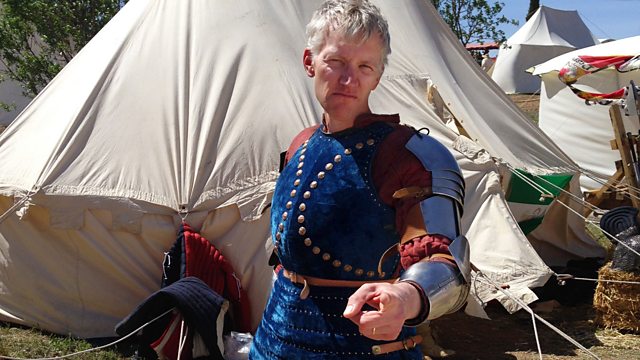28/07/2015
Mike Heyworth of the Council for British Archaeology and Dan Hicks from the University of Oxford join Helen Castor to discuss problems with local archaeology services.
Helen Castor is joined by Mike Heyworth of the Council for British Archaeology and Dan Hicks from the University of Oxford, discussing the impact of spending cuts on local archaeology services and how to overcome them.
Dr Ruth Young is just back from the Lebanon where a team from the University of Leicester have been working fruitfully in places that were once thought to have been wiped clean of archaeological significance by the civil war.
Tom Holland is on Dartmoor to look at the first stone circle to be discovered there for over a century and one that, we think, has been untouched for hundreds of years.
Producer: Nick Patrick
A Pier production for 大象传媒 Radio 4.
Last on
Is there a funding crisis in local archaeology?
Much archaeological work in the UK is carried out for and behalf of local councils and is paid for by developers. Providing an archaeological service isn鈥檛 a statutory requirement of local authorities but they must ensure that archaeology is taken into consideration when new developments and infrastructure is planned. Traditionally, local councils have had a team of heritage and archaeological professionals on staff to help record and, often, interpret new archaeological finds. However, with significant cuts being made to town hall budgets, the provision of these services are under threat as councils fight to maintain important core services such as social care and education.
Over the last few months, archaeologists, heritage professionals and interested listeners have been contacting Making History and pointing up examples of what they think are signs that local archaeology is in crisis.
One of the biggest areas of concern is over the maintenance of Historic Environment Records. There are nearly 90 of these around the UK and they hold data on history buildings and archaeological finds which will provide information for future generations even if the sites they refer to have been lost. The evidence is that some of these records (most often based on counties and kept in county offices) are being neglected and it is difficult for researchers or members of the public to learn much from them.
Making History spoke to members of the Horsham Archaeological Group in West Sussex, the Home Builders Federation, Tim Loughton MP - the co Chair of the All Party Archaeology Committee and John Lewis from the Society of Antiquaries London.
听听
听
Are there problems in your area. How would you re-organise local archaeology? Contact making History听 making.history@bbc.co.uk
Archaeology in the Lebanon
The damage being done to archaeological sites by Islamic State has made headline news around the world. But, conflict has always affected our archaeology. Now a team from the University of Leicester and the American University of Beirut are showing that archaeologists are uniquely skilled at salvaging evidence from the past. With the help of the Lebanese government, they been working on Roman remains in the Neha valley which were badly damaged by the long-running civil war which started in 1975.
is one of the academics involved.
听
听
Dartmoor Stone Circle
Tom Holland joins Jane March and, Senior Archaeologist at Dartmoor National Park on a very long walk to see the first stone circle to be discovered there for over a century. It was revealed after a fire stripped it of a cover of peat and now archaeologists are excited that this stone circle might have gone untouched for centuries.
听
听听
听听
听
Broadcast
- Tue 28 Jul 2015 15:00大象传媒 Radio 4
Podcast
-
![]()
Making History
Popular history series where the past connects with the present.


